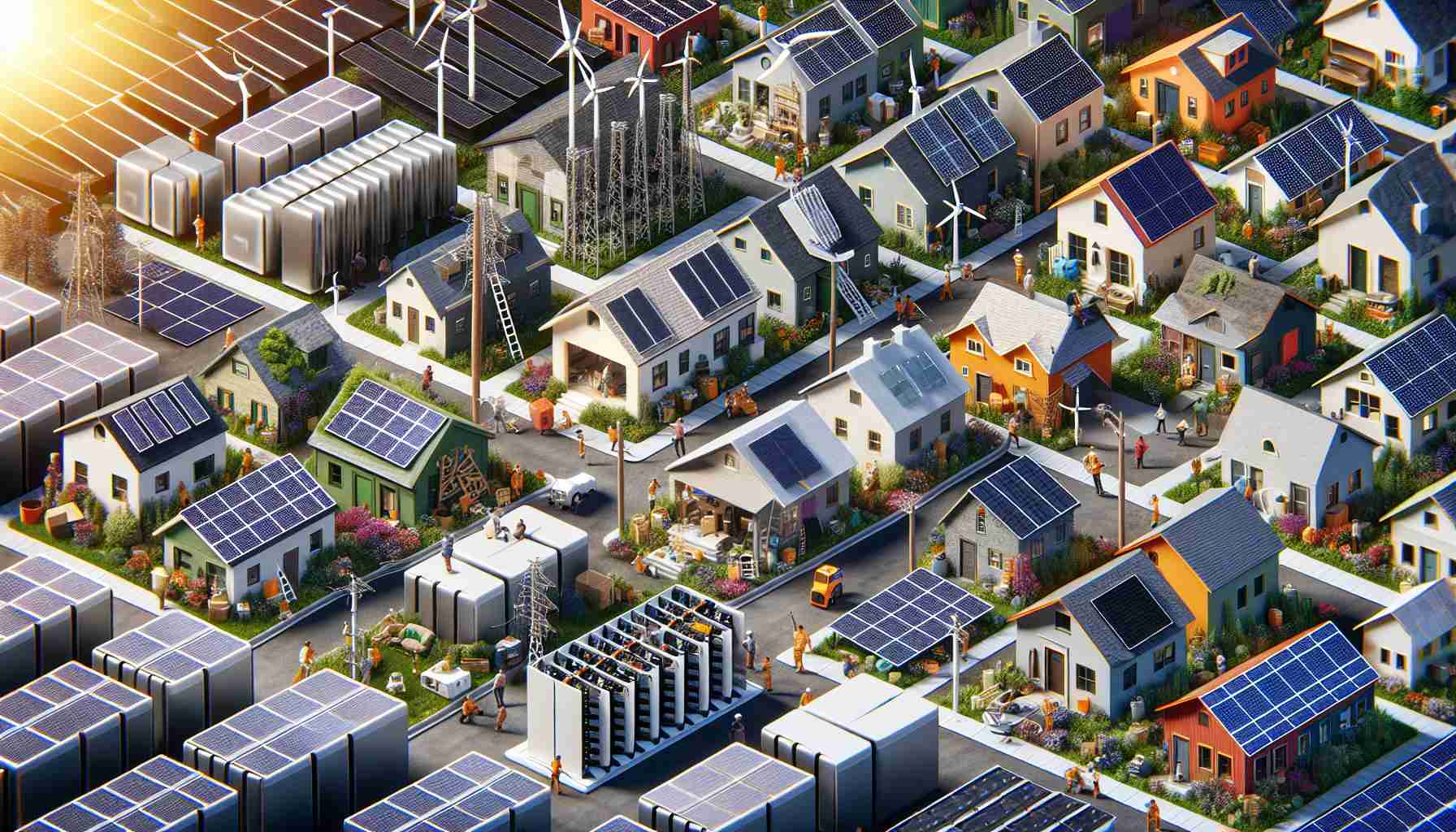A New Bill Could Change How Energy Projects Are Approved in Washington
Washington state’s ambitious energy goals necessitate a surge in renewable energy initiatives like wind and solar farms. However, local residents and tribes often feel excluded from the decision-making process regarding the placement of these projects.
Representative Mary Dye, a Republican from Pomeroy, is advocating for House Bill 1188, which aims to give greater authority to local communities. Currently, the Energy Facility Site Evaluation Council (EFSEC) makes development recommendations to the governor, who ultimately decides on project approvals. Dye argues that this system sidelines the concerns of local inhabitants, both tribal and nontribal, often leading to inequities, especially in rural areas.
Under the proposed legislation, counties and federally recognized tribes would receive project recommendations simultaneously with the governor. They would then have a 90-day period to either approve, reject, or request modifications to the projects before any final decision is made by the governor.
One contentious project is the Horse Heaven Clean Energy Center, which has faced strong opposition from local communities and tribal leaders. Following local testimonies regarding the need for greater local input, the discussions surrounding the bill have gained momentum.
Despite widespread public support for the bill, the Association of Washington Business has expressed concerns, warning that the added layers of approval could hinder the development necessary for achieving the state’s clean energy ambitions.
Empowering Local Voices in Energy Decisions
The push for House Bill 1188 in Washington state signifies a pivotal shift in energy project approval, reflecting broader implications for society and the economy. By giving local communities and tribes a more substantial voice in decisions that directly affect their land and quality of life, this legislation promotes a more inclusive dialogue surrounding energy development. This localized approach can encourage trust and collaboration, significantly affecting community well-being and social fabric.
Furthermore, the dynamics of renewable energy deployment hinge on public acceptance. Projects that integrate community feedback are more likely to receive support, fostering a robust social license to operate. As a result, we could witness an acceleration in renewable installations, contributing positively to Washington’s ambitious climate targets while uniting communities toward shared goals.
From an environmental perspective, the bill may lead to more optimally sited projects. Local knowledge can reveal important ecological considerations that may be overlooked by distant regulatory bodies. This could reduce adverse impacts on ecosystems and promote sustainable development practices.
Looking ahead, the approach outlined in House Bill 1188 could set a precedent beyond Washington, potentially influencing how energy projects are developed across the country and reshaping the framework for community engagement. As society grapples with the urgent need for clean energy, ensuring that local voices are heard may become a cornerstone of successful, equitable, and sustainable renewable energy initiatives globally.
Empowering Communities: A Game Changer for Renewable Energy Projects in Washington
Overview of House Bill 1188
Washington state is on a pathway to significantly enhance its renewable energy landscape, striving for ambitious goals centered around wind and solar initiatives. However, the methodologies for approving these energy projects are under scrutiny. Recently, House Bill 1188, championed by Representative Mary Dye, has emerged as a pivotal piece of legislation designed to transform the approval process of energy projects in Washington.
Key Features of House Bill 1188
– Local Authority Empowerment: Under this bill, counties and federally recognized tribes will have direct involvement in project approvals. They will receive recommendations simultaneously with the governor and will be given a 90-day window to respond, ensuring local voices are considered before any final decision is made.
– Increased Community Input: Previously, local concerns were often overshadowed by state-level assessments. Bill 1188 aims to rectify this by ensuring that community feedback is integrated into the decision-making process from the outset.
Pros and Cons of the Bill
Pros:
– Enhanced Local Engagement: By prioritizing local input, the bill fosters a sense of ownership and responsibility among communities affected by these projects.
– Fairness in Decision Making: It seeks to address historical inequities, especially for rural communities and tribes, by allowing them a platform to voice their opinions and necessities regarding energy projects.
Cons:
– Potential Delays in Project Implementation: Critics, including the Association of Washington Business, warn that the additional layers of approval could slow down important renewable energy developments, which are critical for meeting state emissions and clean energy targets.
Controversies Surrounding Energy Projects
The Horse Heaven Clean Energy Center project has become a flashpoint in the discussions over House Bill 1188. Local communities and tribal leaders have raised significant concerns about its environmental impact and the lack of adequate input in the planning stages. Their opposition has highlighted the urgency for reform in how energy projects are assessed and approved.
Innovations in Community Involvement
This bill stands as a testament to a broader trend where community engagement in energy decision-making is being prioritized. This shift indicates an evolving energy landscape where sustainability and local needs are beginning to align more closely.
Looking Ahead: Trends and Predictions
As legislative discussions continue, the impact of House Bill 1188 could set a precedent for how energy projects are approved not just in Washington, but potentially across the nation. If successful, it might inspire similar changes in other states that are grappling with the dichotomy of rapid renewable energy development versus local community concerns.
Conclusion
House Bill 1188 represents a significant step toward democratizing the energy project approval process in Washington. By prioritizing local authority and input, the bill seeks to harmonize the drive for renewable energy with the needs and voices of the communities most affected. As this legislative effort unfolds, it may define the future of energy development and community relations within the state.
For more information on renewable energy initiatives and regulations in Washington, visit Washington State Government.
